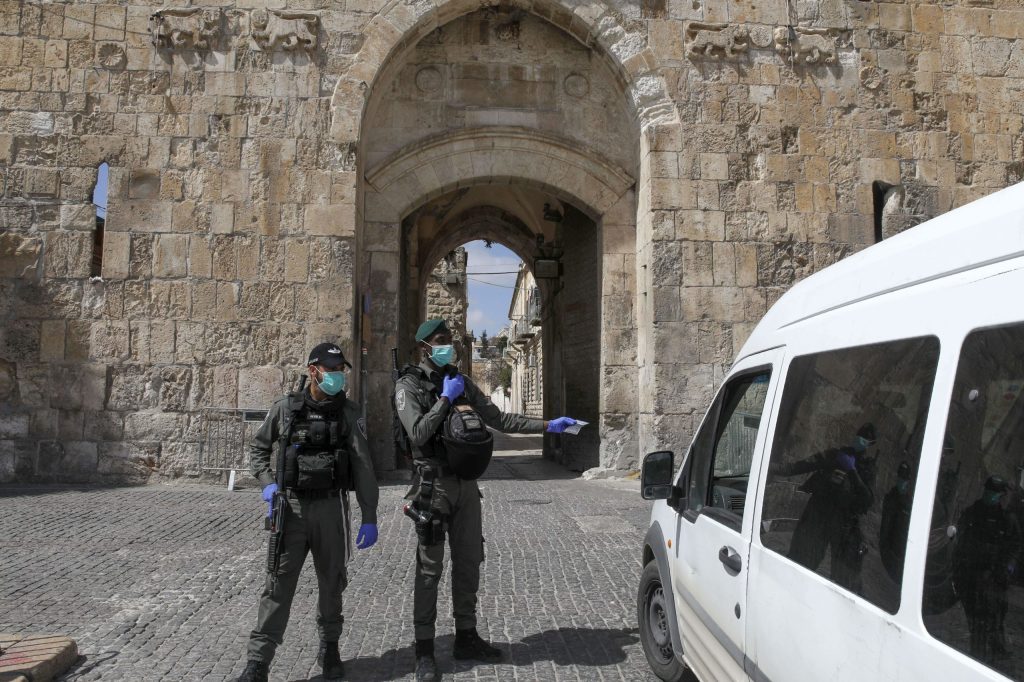An Israeli startup called Vocalis Health is working with the country’s National Emergency Team to conduct a trial using voice samples to identify coronavirus. It is one of many innovative approaches being trialed in Israel as the country is radically transformed by the battle against the virus.
The Israeli Ministry of Defense’s Directorate of Defense Research and Development said this week that the study with Vocalis Health would look at voice recordings and use artificial intelligence to help identify carriers of the disease. ‘These recordings will then undergo data analysis using neural networks.’ The idea is that an algorithm that would identify characteristics associated with symptoms of the virus. The obvious advantage of the system is that it could be conducted by people from home using smart phones and wouldn’t require interaction with medical staff, which helps with the social distancing procedures that most countries recommend as a way to fight the virus.
Israel has taken a unique approach to fighting COVID-19, allowing its security services to use tools normally used to follow terrorists to track carriers of the virus. The Mossad also helped bring 100,000 testing kits to Israel, although it was unclear if they were actually usable. The Israeli army is also joining the battle, and has instituted its own bus system for soldiers after public transport was shut down this week. A military DNA laboratory was opened to process tests for the virus.
But efforts to slow the virus’s spread are not showing as much improvement as would be hoped after two weeks of increasing lockdowns and restrictions. Israeli prime minister Benjamin Netanyahu warned on March 25 that thousands of patients could be in danger of death if the country didn’t commit to harsher lockdowns of citizens. Now millions are requested not to leave their homes, except for essentials.
The health ministry has advocated a total lockdown, bringing traffic to a halt and sending police to ask people if they are ‘essential workers’ allowed to travel. This goes beyond methods that have proven successful in Singapore, South Korea and other countries and it is unclear if the draconian methods are working.
There were 2,400 cases of the virus in Israel on the morning of March 26 and the number is rising by the hundreds every day. Israel has almost twice as many cases per capita as the UK and its rate of infection is similar to France, Belgium, Norway and other western countries. This appears to show that despite Israel being well prepared for national emergencies such as earthquakes, biological warfare attacks and rocket attacks, it did not roll out a clear plan to fight the virus. Israeli officials, according to discussions I had at the time, knew they were preparing for a worst-case scenario with coronavirus. But the government has been distracted by the recent political impasse.
Prime Minister Netanyahu, now in power for more than 10 years, has held three elections in the last year and is unable to form a government. He is also facing a corruption trial and at the last election on March 2, his party did not gain many more seats. To break the impasse, the president has asked opposition leader, and former Army chief of staff Benny Gantz, to try to form a national unity government. This has not helped the focus on the coronavirus.
Jerusalem now seems like a ghost town. The once vibrant, multi-cultural, noisy city with its traffic jams seems like a dream, replaced with a dystopian world. The government has no clear plan for how to exit the weeks of lockdowns and unemployment has reached 20 percent. 800,000 are now out of work with tens of thousands registering as unemployed every day. Without a government, and facing an existing budget crises, the country is hurtling toward an unclear future with threats such as Iran still looming on the horizon. Even if technology can help fight the virus it won’t provide a magic wand to end lockdowns and aid the economic recovery.
This article was originally published onThe Spectator’s UK website.


















